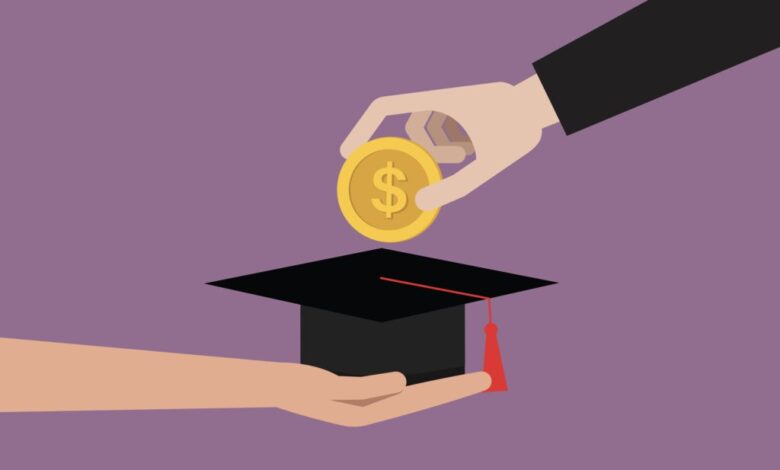The Benefits of Student Loans for Higher Education

In today’s competitive job market, higher education is more important than ever. However, the rising costs of tuition, books, and living expenses can make pursuing a degree seem daunting. Student loans have emerged as a crucial financial tool for many aspiring students. While the idea of debt may seem intimidating, the benefits of student loans for higher education can far outweigh the drawbacks. In this article, we will explore how student lån can facilitate access to education, enhance career prospects, and provide financial flexibility for students.
1. Access to Higher Education
One of the most significant benefits of student loans is that they provide access to higher education for those who might not be able to afford it otherwise. In many cases, scholarships and grants do not cover the entire cost of college. Student loans bridge this financial gap but it should be processed from reputable institute like lånno.no, allowing students to pursue their educational goals without the burden of immediate payment.
a. Covering Tuition and Fees
Tuition costs have risen dramatically over the past few decades. According to the College Board, the average annual tuition and fees for a public four-year institution increased by 215% from 1990 to 2020. Student loans help students cover these expenses, enabling them to focus on their studies rather than worrying about financial constraints.
b. Living Expenses and Other Costs
In addition to tuition, students face various living expenses such as housing, food, transportation, and textbooks. Federal and private student loans can cover these costs, making it possible for students to dedicate themselves fully to their education. By alleviating the financial burden of daily expenses, student loans allow students to concentrate on their coursework and extracurricular activities.
2. Improved Career Prospects
Investing in higher education often leads to better job opportunities and increased earning potential. The U.S. Bureau of Labor Statistics consistently shows that individuals with a bachelor’s degree earn significantly more than those with only a high school diploma.
a. Higher Earnings Potential
According to the National Center for Education Statistics (NCES), individuals with a bachelor’s degree earn approximately 66% more than those with just a high school diploma. By obtaining a degree financed through student loans, graduates position themselves for higher-paying jobs in their chosen fields, ultimately making it easier to repay their loans.
b. Networking and Opportunities
Attending college provides students with invaluable networking opportunities. College environments encourage collaboration and connection, enabling students to build relationships with peers, professors, and industry professionals. These connections can lead to internships, job offers, and mentorship opportunities that can be instrumental in a student’s career advancement.
3. Flexible Repayment Options
Student loans often come with flexible repayment options, making it easier for borrowers to manage their debt after graduation.
a. Income-Driven Repayment Plans
Federal student loans offer income-driven repayment plans, which adjust monthly payments based on the borrower’s income and family size. This means that if a graduate finds themselves in a lower-paying job after college, their loan payments will be manageable. Additionally, after a set number of years of payments, any remaining loan balance may be forgiven.
b. Deferment and Forbearance
In times of financial hardship, borrowers may have the option to defer or forbear their loans. Deferment allows students to temporarily pause payments without accruing interest on certain types of loans. Forbearance, on the other hand, permits borrowers to reduce or suspend payments for a limited time. These options provide peace of mind for graduates as they transition from college to the workforce.
4. Building Credit History
Another advantage of student loans is that they can help students establish a positive credit history.
a. Establishing a Credit Score
Making regular, on-time payments on student loans can significantly improve a borrower’s credit score. A strong credit score is essential for securing future loans, such as mortgages or auto loans, at favorable interest rates. By managing student loans responsibly, graduates can set themselves up for better financial opportunities in the future.
b. Financial Literacy and Responsibility
Taking on student loans also encourages financial literacy and responsibility. Many students learn valuable budgeting and money management skills as they navigate their loan repayments. Understanding how to manage debt is a crucial life skill that can benefit individuals throughout their lives.
5. Supporting Personal and Professional Growth
Student loans not only fund education but also contribute to personal and professional development.
a. Diverse Learning Opportunities
Many students use loans to enroll in specialized programs, certifications, or internships that enhance their education. These experiences can provide additional skills and qualifications that make graduates more competitive in the job market.
b. Pursuing Passionate Fields
With the financial support of student loans, students can pursue degrees in fields that align with their passions, even if those fields may not lead to the highest-paying jobs. This can lead to increased job satisfaction and overall well-being, which are essential for a fulfilling career.
Conclusion
While the prospect of student loans may initially seem overwhelming, the benefits they offer for higher education are significant. By providing access to education, improving career prospects, offering flexible repayment options, building credit history, and supporting personal growth, student loans serve as a vital resource for many students.
As you consider your educational path, it’s essential to weigh the potential benefits of student loans against the costs. By making informed decisions and managing your loans responsibly, you can take full advantage of the opportunities higher education has to offer and pave the way for a successful future. Remember, investing in your education is investing in yourself—one of the most important decisions you can make.



